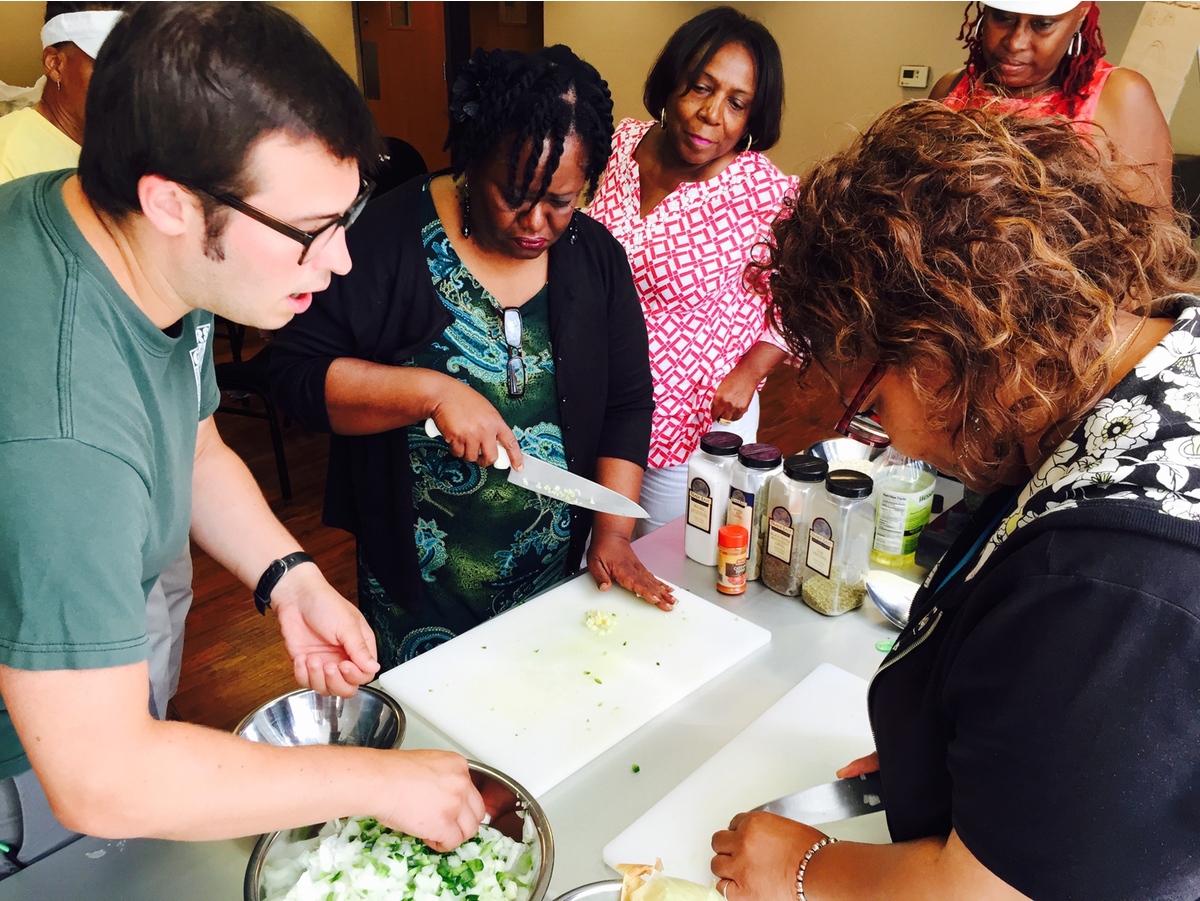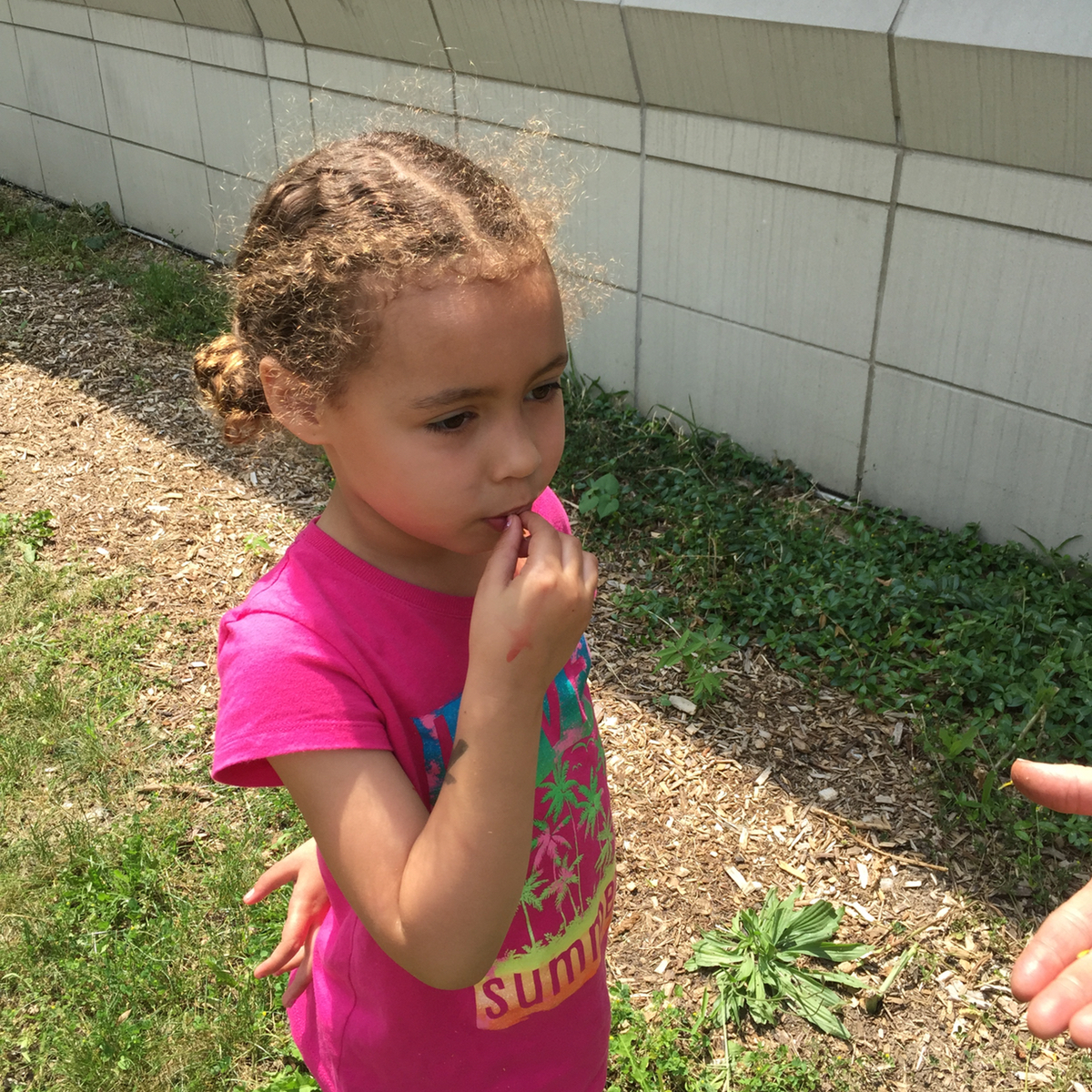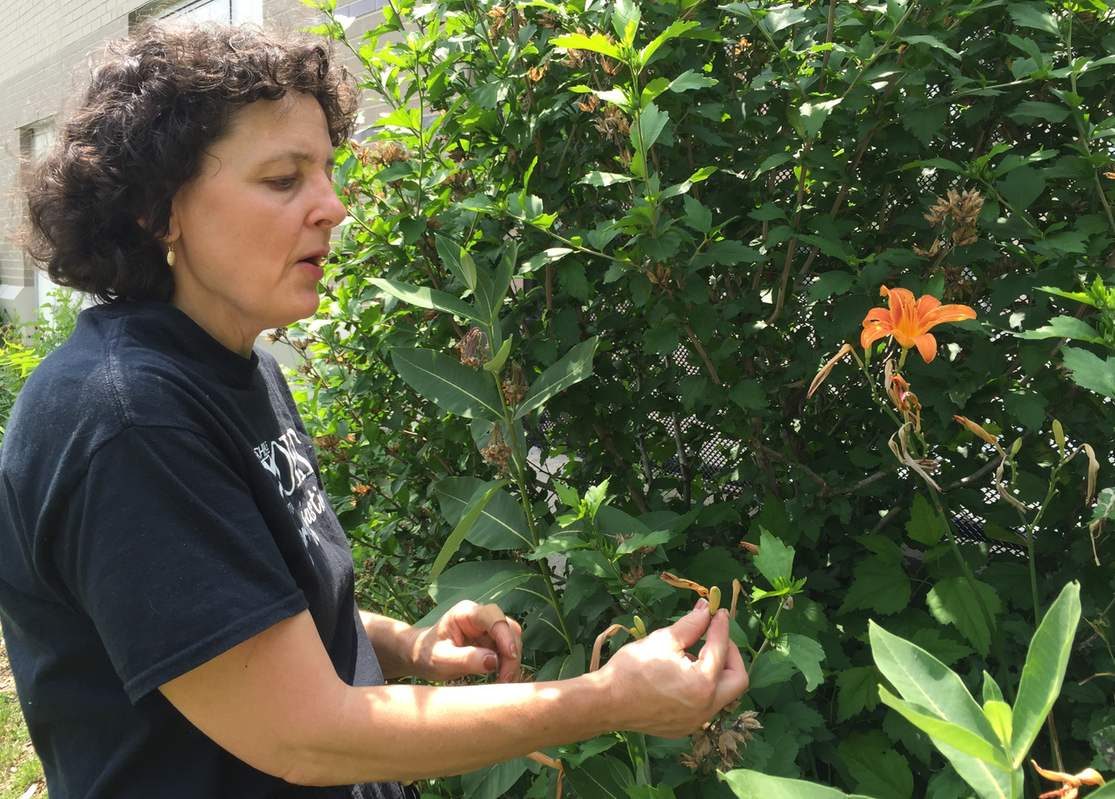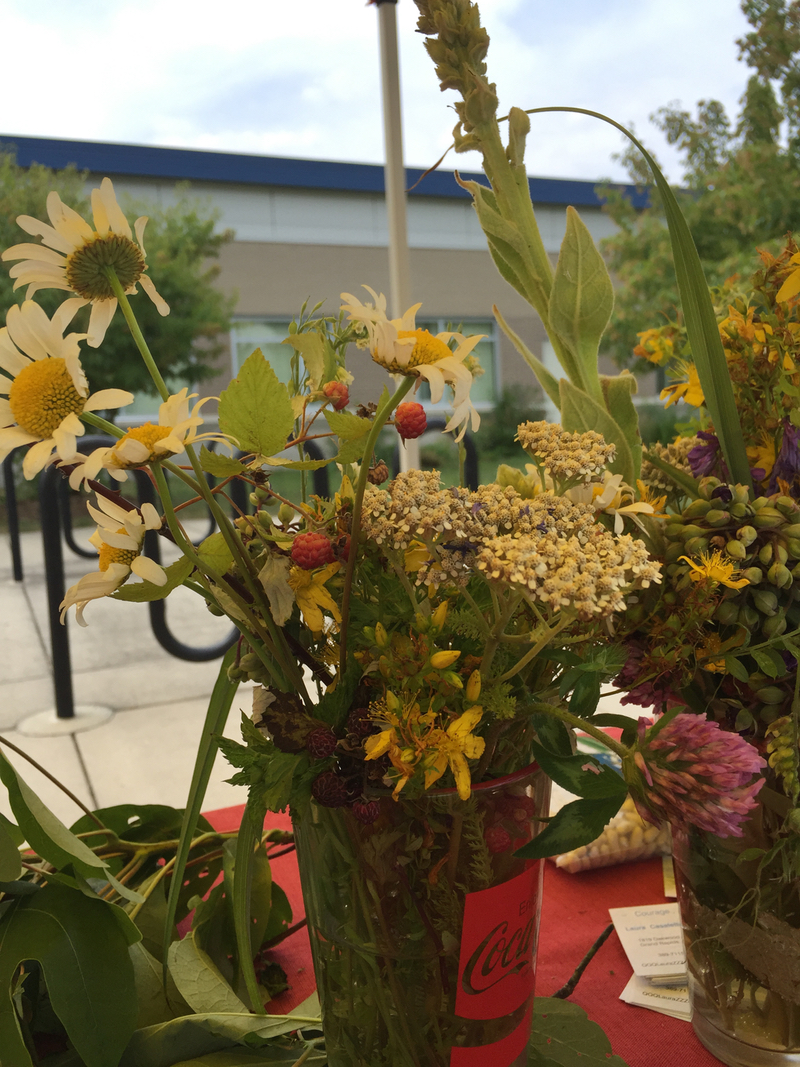For impoverished Michiganders, a little help in the kitchen

None of the women sitting in front of James Hartrick on a recent morning in Detroit look like kitchen amateurs, but he takes nothing for granted.
He’s here to show them how to make barley jambalaya, and he starts with the basics: Food safety. Hand washing. How to handle a knife. He asks if anyone in the group has food allergies or sensitivities. And then he gets to work dicing onions and green peppers.
This is Cooking Matters, a class aimed at low-income families, though open to all, to teach healthy food preparation, shopping and meal planning.
Nutrition and budgeting classes such as these are increasingly important in Michigan as residents face increased poverty, hunger and obesity.
Some of Michigan’s low-income families have seen their food budgets shrink because Michigan’s tough stance on federal food assistance has led to reductions in such programs in recent years.
Nutrition programs help fill the gap – offering low-income families help that goes beyond giving away food giveaways to help them budget and eat better. In 2014, 75 percent of Cooking Matters participants said the classes improved their nutrition practices and between 42 and 73 percent of participants (from children to seniors) reported eating more fruits and vegetables, according to Michigan State University Extension, which administers the program.
Hartrick’s class is a special edition for diabetics. Eleven participants, all African-American women, have gathered in a west-side community center to watch how he puts together this Cajun-influenced, low-fat, nutrient-balanced dish. They will leave with the recipe, the ingredients to reproduce it at home and the hope that it will perhaps inspire a change in how they prepare and consume meals.
Like a recipe, the class proceeds in steps; a little technique, a little education, a little audience participation. Members of the class share their reasons for being here today.
“I have to get my (blood) sugar down. Walking’s not helping,” one says. The smell of frying onion and pepper begins to waft through the room as the discussion turns to carbs and fats.
Michigan gets $23.7 million in federal funds to educate low-income residents on healthy eating habits, the second-highest amount allocated to any state. Noting the encouraging outcomes of nutritional education, experts say more can and should be done to make sure proven nutrition programs reach more people in need.
Hard poverty, fewer food benefits
The U.S. Census reported in September that one-in-six Michigan residents lives in poverty. Even so, some low-income residents receive less federal food assistance than in the past due to the state’s tough stance on public benefits. Michigan is one of 14 states that have an asset test for families enrolled in the Supplemental Nutrition Assistance Program (SNAP), formerly known as the food stamp program. In Michigan, anyone with savings over $5,000 cannot get federal food assistance, regardless of income. And last year Michigan was one of only four states that chose to not invest in the federal “heat and eat” program, which offers more food benefits to poor families in northern states to offset higher heating costs, which would’ve cost the state $18 million.
As a result, about 169,000 Michigan households enrolled in SNAP saw their federal food assistance reduced by an average of 15 percent, or $76 per month, according to the Michigan Department of Health and Human Services data.
The state’s food insecurity rate also is about 15 percent, which means about one in six residents lack the funds to provide a reliable source of healthy food.
And yet, paradoxically, Michigan also is getting heavier – 30 percent of adults were classified as obese in 2014, up from 22 percent in 2000 and 13 percent in 1990, according to “The State of Obesity,” funded by the Robert Wood Johnson Foundation.
Cheap food is often filling but not healthy, so many impoverished families end up overweight, said Dawn Contreras, director of the Health and Nutrition Institute at the Michigan State University Extension.
“People fill up on low-nutrient, high-calorie food because they’re hungry and that’s what they have access to,” she said. “The cheapest food ends up being the food that promotes obesity.”
MSU Extension gets $7.5 million in federal SNAP Education funds to teach low-income residents how to improve their nutrition. MSU reached 84,000 people statewide last year and funds Cooking Matters classes taught outside the Detroit metro area (classes within the five-county metro-Detroit area are administered by Gleaners Community Food Bank) among other programs.
Cooking Matters is a national program dating from the early ‘90s ‒ a spinoff of the national hunger-relief program Share Our Strength, now known as No Kid Hungry. The cooking program came when organizers realized putting food into people’s hands was only half the battle, said Sarah Mills, program manager for Cooking Matters in Detroit.
“We can raise awareness and money to get food, but if people don’t know how to cook, it won’t be used,” said Mills. As lower-income people are likely to have complex or irregular work schedules and other challenges to a healthy lifestyle, Cooking Matters classes emphasize smart shopping and meal planning, so meals can be served even in difficult conditions.
In addition to surveys showing participants adopting healthier eating habits, the Cooking Matters program is slowing showing itself to be scalable: More than 5,000 people took Cooking Matters courses statewide in 2014, up from fewer than 1,000 in the program’s first year, in 2009.
Families interested in better nutrition must sign up for programs like Cooking Matters, it is not required in order to receive federal food benefits. But as low-income people look for ways to stretch food dollars, it and other programs are part of the solution.
Double Up Food Bucks, for instance, allows SNAP recipients to double their food assistance dollars if they use the money to buy Michigan-grown fruits and vegetables at farmers markets and select grocery stores. It is a result of the the Local Food for Healthy Families Act, a federal law passed last year that provides five years of funding for food incentive programs. Participants have their EBT cards debited and receive twice the amount in tokens to spend at markets.
Foraging ahead
The sharp-eyed can even find fresh food growing from the ground, if they care to learn plant identification on vacant lots, hedgerows and other green spaces.
This past summer Laura Casaletto sat at a table at farmer’s market in a school parking lot in Grand Rapids next to a bucket of flowers and greens she plucked from public areas around town. Daisies, lamb’s quarters, St. John’s wort are all edible or good for making tea.
She also had a bowl of stir fried, orange day lily buds that tasted buttery, salty and a little slippery, not unlike okra. She and a plant-smart 5-year-old led a tour around Gerald Ford K-8 Academy for a class on foraging edible wild plants.
In about 15 minutes the school grounds and a neighbor’s side yard yielded wild grape leaves, milkweed, plantain, oyster plant, wild tomatillo, mulberries, garlic mustard, wild lettuce, lamb’s quarters and a bunch of flowers.
“Plants produce toxins to protect themselves,” Casaletto said, advising foragers only eat orange day lilies, no other colors. But as proof that wild plants can be wildly popular, she pointed out, “Martha Stewart has a recipe for candied violets.”
Offered by Our Kitchen Table, a nonprofit, the foraging class teaches low-income Grand Rapids-area residents another way to put good food on the table, a method that costs no more than the effort to gather the plants. The classes started in 2013 with seven curious students, and has since served 157 people.
“Think about it, a bunch of dandelions costs what, $3.99 at Whole Foods?” said Lisa Oliver-King, director of OKT. “And we show people how to get it for free.”
Casaletto said there’s no such thing as weeds, because people can eat plenty of so-called weeds in salads once they learn to identify the good stuff.
A knowledge and fiscal deficit
Most Americans are now dependent on a business, a grocer or farm stand to tell them what plants or vegetables to eat. It took only a generation or two for a majority of Americans to go from growing their own food to being unable to tell the difference between a pepper and a poison.
One way to expand the reach of proven nutrition programs could be to offer them to a captive audience – school kids, said Sara Gold, director of Michigan No Kid Hungry, a Share Our Strength initiative supported by United Way for Southeastern Michigan.
Young people in vulnerable communities could be reached by adding nutrition education programs to school curriculums, or by tying nutrition lessons into federally-funded school meal programs, Gold said.
“We don’t really put those things together in ways that we could at the state level,” she said. “We know what works. We have to pay for it, expand it.”
But it has to be all carrot, no stick. "Federal regulations would not allow the state to mandate nutrition education classes," said Bob Wheaton, spokesman for the Michigan Department of Health and Human Services.
Cooking Matters and the foraging workshop maximizes and supplements SNAP benefits, but need remains high for the 1.5 million people – as of May – who still receive food assistance in Michigan.
Michigan’s asset test prevents some low-income Michigan residents from getting food assistance. Those who have a second car worth $15,000 or have savings of more than $5,000 have to choose between those savings and government assistance for food. They can’t have both.
The state defends its approach to food assistance eligibility, saying the effort is meant to protect U.S. taxpayers by providing federal food dollars to only the poorest of the poor in Michigan.
“While food assistance is provided with federal dollars, they are nonetheless taxpayer dollars,” said Bob Wheaton, spokesman for the Michigan Department of Health and Human Services. “And we are committed to integrity in the state’s public assistance system.”
Through MSU Extension, “Cooking Matters” is funded in part by SNAP Education funds but also with other grants and private donations. The diversity of funding sources means the workshops can be open to people who are – or are not – eligible for federal food assistance.
“We teach people to harvest right off the land, to go out and get fish and harvest fruit and vegetables and wild plants, learn how to prepare it and store it,” said Contreras, of MSU Extension. “Not everyone who needs it is eligible for food assistance. We know some people fall between the cracks. We don’t turn anyone away.”
Back in the Detroit Cooking Matters class, participant Gayle Pettiford, 74, says she has been working to improve her diet and live a healthier lifestyle since she was diagnosed with Type II diabetes nine years ago.
“I take my sugar reading every morning,” Pettiford said. “On a good day, it’s around 109 to 115. On a day when I cheat, it might be 143. Once a month I’ll have a breakfast splurge on breakfast, sausage and eggs. Otherwise I eat oatmeal.
“Back in the day, we all ate a lot of fried food, things that didn’t have a lot of substance. I don’t eat none of that anymore. I’m learning."
See what new members are saying about why they donated to Bridge Michigan:
- “In order for this information to be accurate and unbiased it must be underwritten by its readers, not by special interests.” - Larry S.
- “Not many other media sources report on the topics Bridge does.” - Susan B.
- “Your journalism is outstanding and rare these days.” - Mark S.
If you want to ensure the future of nonpartisan, nonprofit Michigan journalism, please become a member today. You, too, will be asked why you donated and maybe we'll feature your quote next time!
 Cooking Matters: Instructor James Hartrick shows participants in a Cooking Matters class in Detroit how to put together a barley jambalaya dish. (Bridge photo by Nancy Derringer)
Cooking Matters: Instructor James Hartrick shows participants in a Cooking Matters class in Detroit how to put together a barley jambalaya dish. (Bridge photo by Nancy Derringer) Vedette Flier-Certa, 5, of Grand Rapids, enjoys growing mushrooms at home. She tasted wild flowers growing near a school in Grand Rapids during a foraging workshop that seeks to teach people how to harvest local wild plants. (Bridge photo by Chastity Pratt Dawsey)
Vedette Flier-Certa, 5, of Grand Rapids, enjoys growing mushrooms at home. She tasted wild flowers growing near a school in Grand Rapids during a foraging workshop that seeks to teach people how to harvest local wild plants. (Bridge photo by Chastity Pratt Dawsey) Laura Casaletto is one of the instructors for a foraging workshop conducted by Our Kitchen Table, a nonprofit that holds cooking and nutrition classes for low-income families and other residents in the Grand Rapids area. (Bridge photo by Chastity Pratt Dawsey)
Laura Casaletto is one of the instructors for a foraging workshop conducted by Our Kitchen Table, a nonprofit that holds cooking and nutrition classes for low-income families and other residents in the Grand Rapids area. (Bridge photo by Chastity Pratt Dawsey) Wild plants including lambs quarters found on public, clean land was picked for free and can be cooked or put in salads. (Bridge photo by Chastity Pratt Dawsey)
Wild plants including lambs quarters found on public, clean land was picked for free and can be cooked or put in salads. (Bridge photo by Chastity Pratt Dawsey)